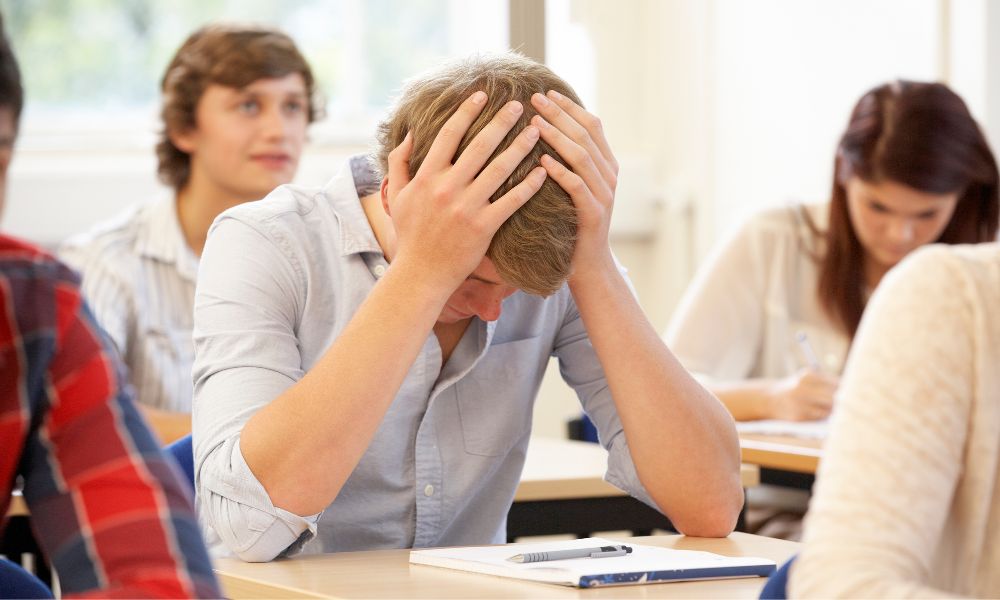
02 Jun What Is Twice-Exceptional?
WHAT IS TWICE-EXCEPTIONAL?

People do not always realize that gifted students can also have a disability. On the other hand, students with disabilities may also be very proficient. We know of children who are greatly talented in music or possess a high mastery of literature, math, or science. On the other hand, we also encounter students with different challenges, such as dyslexia, or ADHD. However, some children fall under both categories. Gifted and challenged children at the same time are what we call Twice-exceptional or 2e.
Twice-exceptional children have a unique struggle. On the one hand, some of these children may be able to compensate for their difficulties through their giftedness. They may exploit their talents intentionally or unintentionally to conceal their shortcomings in other areas. In other circumstances, their impairment may overshadow their giftedness and other qualities if it manifests early on.
Twice-Exceptional Characteristics
➡ Intellectual
- a highly curious, divergent thinker
- intellectually advanced
- creative problem solvers
- an insatiable need for learning and information
- learns systems to an unusual degree of competency
- can see deep or tricky connections not easily seen by others
- advanced creativity
- strong metacognitive (thinking about their thinking) skills
- a unique insight into complex issues
- has different, often unusual perspectives
- likes to explore wide-ranging, often esoteric, topics
- can rapidly accelerate learning to a great extent of expertise
- advanced, wicked, often bizarre sense of humor
- extraordinary perceptions and abilities in one or more subject
- autodidactic (self-learning ability)
- slower processing speed than typical children
- very flexible in academics
- may seem introverted and spends a lot of time thinking and daydreaming
- long attention span when working on topics they are interested in
- persistent
- demonstrated high-level spatial skills
- enjoys codes, puzzles, chess, strategy games
- good at devising compensatory strategies
- may have challenges with auditory learning and instructions
- advanced reader, can read and understand incredibly complex material.
- very high expectations and perfectionism
- likes to see the big picture first and then fill in details, dismissive of further information in a quest for the bigger picture
- asynchronous intellectual progression
- often have learning disabilities
- can overreact to timed exams and tests
- they might often overthink questions and take a long time to answer
➡ Physical
- They might have issues with food, multiple food aversions, and a need for eating rituals.
- Problems with digestion, gut health, food allergies
- Sensory processing issues
- Likes to handle items and may have an oral fixation.
- They can be sensitive to touch and often do not like touching; conversely, they may be hypersensitive to feeling and seeking rough physical interaction.
- Extremely sensitive to stimuli
- unusual sleeping cycles, difficulty sleeping, less need for sleep
- trouble controlling body movements, awkward, clumsy
- poor fine motor skills
- the trouble with modulating voice levels
- difficulty sitting still, standing in line for a long time, walking with a group of students
- difficulty with personal hygiene routines and managing personal care
- May not be aware of physical needs (might forget to eat, drink, sleep, go to the bathroom)
- may have weak muscle tone, poor motor skills

➡ Emotional
- can be empathetic
- deeply connect to those they love
- often mature for their age
- unusual early emotional development
- overwhelmed by other’s emotions and emotional intensity
- very sensitive, easily wounded emotionally
- may have existential sorrow/depression
- perfectionist
- compulsive, obsessive
- impulsive
- have issues with anxiety, phobias
- unrealistic expectations of themselves
- low self-esteem
- unusual emotional response
- struggle with gray areas, rigid rules, and fairness,
- inflexibility
- They may need time to prepare for changes to routine, and surprises may be challenging for them to take in.
- maybe arrogant or may appear to be arrogant
- feel held back by traditional pacing, bored, frustrated, and learning systems
- not good under pressure
- they need some help understanding facial expressions and body language
➡ Social
- often feel lonely and don’t sync with others
- unusual social growth
- concern for social justice
- has a mature understanding of social injustice and world problems
- cares very much about the future of the world
- questions status quo comes up with creative alternatives
- often outwits older people
- sensitive to hypocritical behavior or patronizing, may confront or disagree with adults in authority on their behavior
- may not follow the rules for rule’s sake; may challenge underlying logic/illogic of regulations,
- maybe hard for them to express themselves verbally
- gullible, often bullied, socially awkward
- gets along with adults, also with much younger/older children
- behavioral issues usually resolve when creatively or intellectually satisfied
- love to challenge themselves and others
- often misunderstood, ostracized
- confused by social protocol

How Do You Identify Twice-Exceptional Students?
Identification for twice-exceptional students is often complicated and requires the unique ability to evaluate and identify the two areas of exceptionality. Sometimes the special needs may be hidden, complicating the evaluation process. Most school districts have no programs for identifying or meeting the academic needs of twice-exceptional students, leaving many 2e kids under-identified and underserved.
According to NAGC’s report on twice-exceptionality, we can identify 2e students in one of the three categories below.
Gifted students who do not have a diagnosed disability may:
- Go unnoticed for possible special education evaluation.
- Considered below average, often perceived as unmotivated or lazy.
Students with a disability but not identified as being gifted may:
- Be a part of projects and practices that focus only on their disability.
- Be inaccurately assessed for their intellectual capacities and abilities.
- Become uninterested in special programs that do not challenge them properly.
Students not formally identified as disabled or gifted may:
- Be assured to have the average ability.
- Struggle as the subjects become more challenging for them.
- Never be referred for special education programs and evaluations due to deflated achievement and standardized test results.
Due to the difficulty of diagnosing twice-exceptional kids and the lack of awareness in most school districts, 2e kids may go undiagnosed for being either gifted, disabled, or both. Not being able to diagnose twice-exceptional conditions can significantly affect twice-exceptional students, including a higher likelihood of dropping out of school.

Tips for Identifying Twice-Exceptional Students
Frequently, multiple classifications in giftedness and disability can complicate proper recognition and lead to a wrong diagnosis. To help with this process, we have listed some tips from experts and specialists in the 2e community, including the 2e Newsletter, SENG, and NAGC, on diagnosing twice-exceptional students:
- Take a multi-dimensional approach to identify twice-exceptional kids and students and consider using both written tests and behavioral assessments.
- Use both formal and informal assessments.
- Separate test scores on IQ tests; most twice-exceptional students are inconsistent performers with uneven skills and asynchronous development.
- Reduce qualifying cut-off scores to account for learning disabilities or differences.
- Consider oral questioning instead of written testing if the student experiences difficulty understanding details.
- Extend the time allotted for the student to show their knowledge without worrying about the time too much.
- Use assessment practices that accommodate language and cultural differences to avoid unfair identification.
How Do You Support Twice-Exceptional Students?
2e kids require a supportive learning environment that helps them reach their full potential—finding the right twice-exceptional school or program that addresses their giftedness and disability. We should still adequately challenge 2e students despite their learning difficulties. The best results are almost certainly through a customized identification and a tailored approach to learning and education.
Here are some techniques for supporting twice-exceptional kids and students:
- Implement and develop an individualized education system based on their talents and interests
- Accommodate both their academic strengths and weaknesses
- Utilize a strengths-based approach that considers the whole child
- Foster their emotional and social development
- Allow students to participate in enrichment experiences and programs.
- Collaborate with other experts in special, gifted education and counseling.
Check Out This On Spotify:
Craig Selinger
Latest posts by Craig Selinger (see all)
- Psychotherapy and Support Services at Cope With School NYC - April 12, 2024
- NYC Parents of Teens Support Group - April 8, 2024
- Here I Am, I Am Me: An Illustrated Guide to Mental Health - April 4, 2024


No Comments